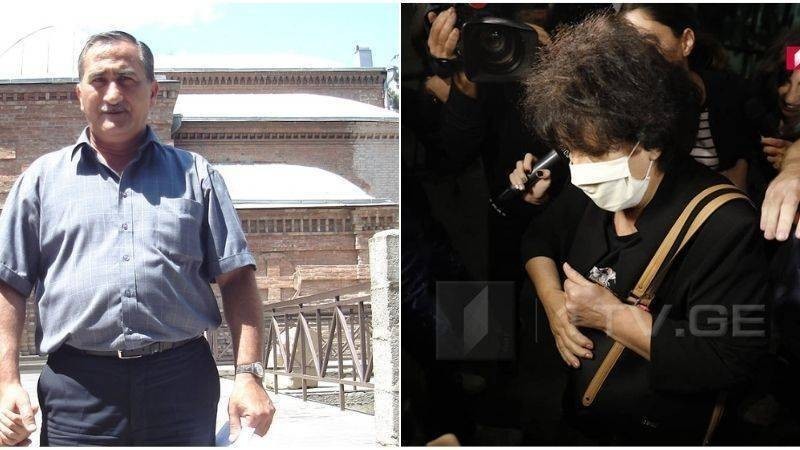საერთო ცხელი ხაზი +995 577 07 05 63


Introduction
Human Rights Education and Monitoring Center (EMC) presents a legal assessment of the cartographers' case and believes that the charges against Iveri Melashvili and Natalia Ilichova, are ungrounded and do not constitute a crime as defined by Article 308 of the Criminal Code (violation of Georgia's territorial integrity). Moreover, the timing and political context of the investigation and prosecution, as well as the pre-election information campaign for this case, organized by the ruling political team, raises doubts about the political instrumentalization of law enforcement power and the system, which contradicts the fundamental principles of legal state.
A detailed analysis of the criminal case file, conducted by EMC, shows that the positions of the state prosecution are manifestly ill-founded. In some cases, there are substantial factual and legal inconsistencies and unexplored circumstances, which raise suspicions of intentional neglect of important circumstances by the prosecution.
In this regard, the problem of the relevance of the application of Article 308 of the Criminal Code should be emphasized first. The official positions of Iveri Melashvili and Natalia Ilichova in the State Commission and their mandate/authority do not allow for the commission of a crime aimed at the transfer of the entire territory, or part of Georgia, to a foreign country, or the secession of a part of it from the territory of Georgia. They were ordinary members of the State Commission, which collectively made decisions on all expert recommendations, and in turn, all these expert recommendations were agreed upon with high-ranking state officials by the Chairman of the Commission. That is why, considering the official status of the accused and their competentce, the application of Article 308 of the Criminal Code to Iveri Melashvili and Natalia Ilichova, for the expert decisions made by the collective body, seems irrelevant and unjustified.
At the same time, the main factual arguments presented by the Prosecutor’s Office that Iveri Melashvili and Natalia Ilichova did not use and hid the original 1:200,000 scale topographic map of 1937-1938, which was in their possession, are also problematic and disputable. A detailed analysis of the case file shows that the issue of the use of the said map was discussed by the State Commission a few years ago and was finally ignored due to scientific arguments. It should be emphasized that the mentioned circumstances, in the case, apart from I.Melashvili and N. Ilichova, are confirmed by other members as well. Thus, the allegation of the Prosecutor’s Office that the presentation and discussion of the mentioned map with the members of the commission were not performed intentionally by the accused is unfounded and artificially created. Moreover, according to the case materials, the fact of hiding the mentioned map is not confirmed either, as it was handed over in full by Natalia Ilichova to another person appointed to the State Commission in 2019, along with the case materials.
For a legal assessment of I.Melashvili and N.Ilichova's actions, it is important to establish the possibility of using a 1:200,000 scale map in the work process. Although conducting such an examination of 1:200,000 scale map was crucial, the case file shows that the prosecution did not prescribe appropriate procedural action and, without assessing the quality and accuracy of 1:200,000 scale map, seeks to create a public perception that the map contradicted cartographic material prepared by I.Melashvili and N.Ilichova in the work process, and exchanged with the Azerbaijan side.
The prosecution also misinterprets the issue of using other maps published by cartographers in the post-1938 period. The agreement of June 13, 1996, established that State Commissions, in the delimitation-demarcation process, should consider 1:500 000 scale border maps, approved by the Presidium of the Central Executive Committees of Georgia and Azerbaijan in 1938, but, at the same time, other documents can be used. It should also be noted that in the substantiation of the accusation, the prosecution points out the illegality of the use of other maps by cartographers, but during the examination, it was not assessed whether the boundary line drawn on the other maps was following the boundary line drawn on 1:500 000 scale map approved in 1938. Assessing and establishing these circumstances was crucial for the criminal case, as the case file show that although the cartographers used maps published in 1942, and 1970-80, in the process of application, they necessarily determined the compatibility of these material with the 1:500,000 scale maps approved in 1938. It should also be noted that no suspicious circumstances were identified in the course of the work, nor did any member of the commission attempt to independently verify whether the prepared maps complied with the 1938 1:500,000 scale demarcation line.
This and the detailed analysis presented below show that the charges against Iveri Melashvili and Natalia Ilichova are unfounded and that is why, in our estimation, it is important to stop the prosecution of the accused.
EMC will seek to support the proper exercise of the right to a fair trial for the accused within the framework of its mandate and the procedures provided by the procedural law.
The website accessibility instruction